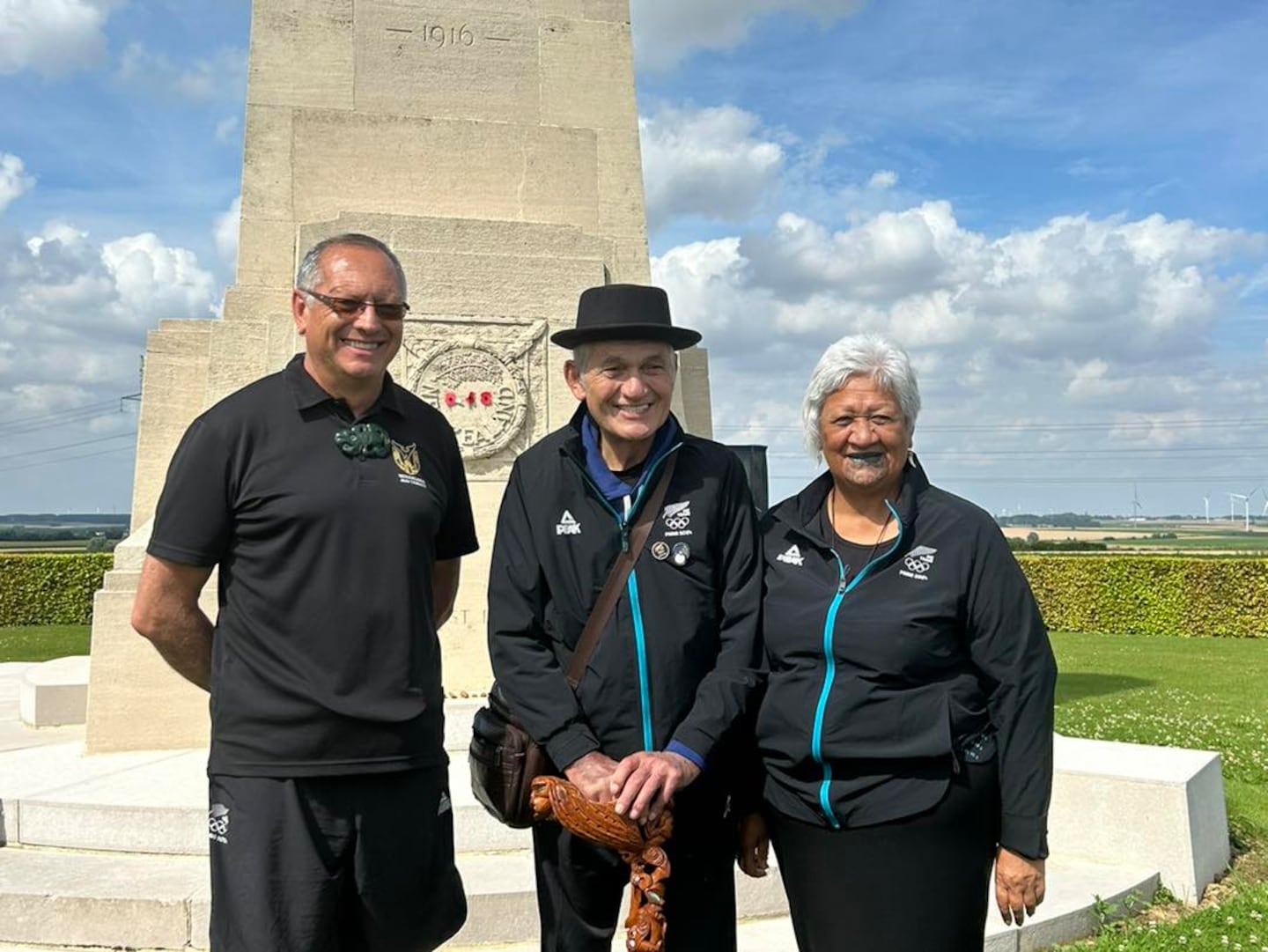Kiingi Tūheitia has taken time out of a packed Olympic Games itinerary to pay his respects to fallen New Zealand soldiers in Arras, France.
The whenua there saw one of Aotearoa’s first contributions to the World War I’s Western Front, with both the Māori Battalion and Gallipoli veterans taking part.
In a post to Facebook, the Kiingitanga honoured the actions of tūpuna who fought in the war.
The Kiingitanga also pointed out the Olympic Games themselves as “a commitment to peace and unity. So we make these haerenga to areas of significance to us to hold fast to kotahitanga and rangimaarie”.
History
On Friday, September 15 1916, New Zealand soldiers took advantage of smoke and mist to advance on a wedge of land which they seized from German troops, east of Flers, a French village.
The New Zealanders, whose ranks included the Māori Battalion and Gallipoli veterans, pushed further ahead than British forces, and found themselves in an isolated and exposed position - a position which now holds a memorial to fallen New Zealand soldiers.
Within five days, the New Zealand forces shored up their position, pressing on with four subsequent attacks in the two following weeks, all smaller scale.
However, the subsequent attacks cost Aotearoa greatly, with many casualties. Still the New Zealand infantry held their ground for more than three weeks.
The cost to the survivors was major too, forced to bear the stench of a corpse-laden battlefield, with heavy rain sweeping through and reducing the battlefield to mud.
It was the Māori members of the Pioneer Battalion who would carve out a communication trench called ‘Turk Lane’, which was kilometres-long and afforded their fellow soldiers safe passage to move in and out of the front line.
The engagements in the area saw 6000 New Zealand soldiers wounded and claimed 2000 soldiers of Aotearoa - many who remain buried nearby in grave with no name - and the offensive ended in 1916 having failed to break the German line.



